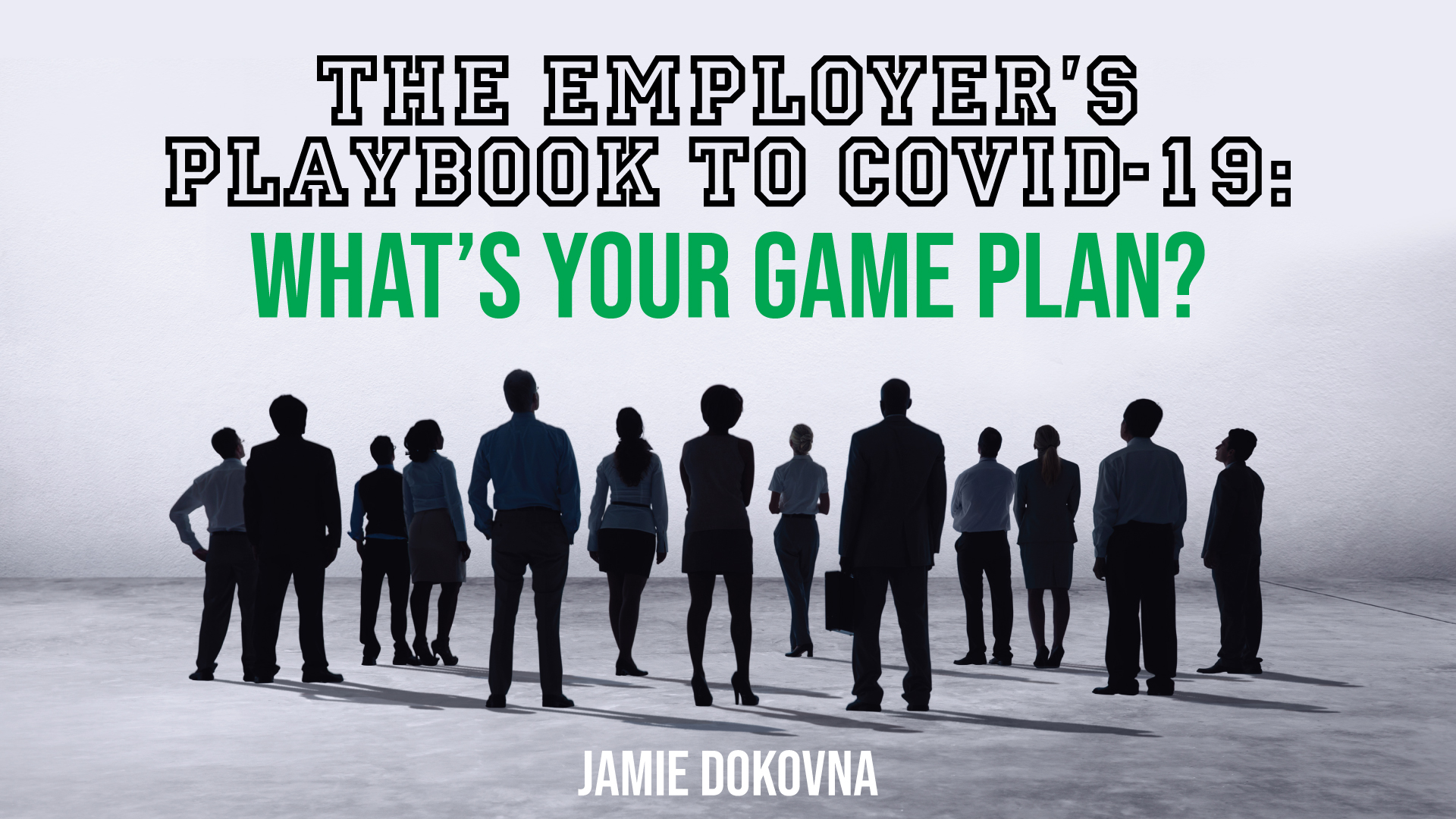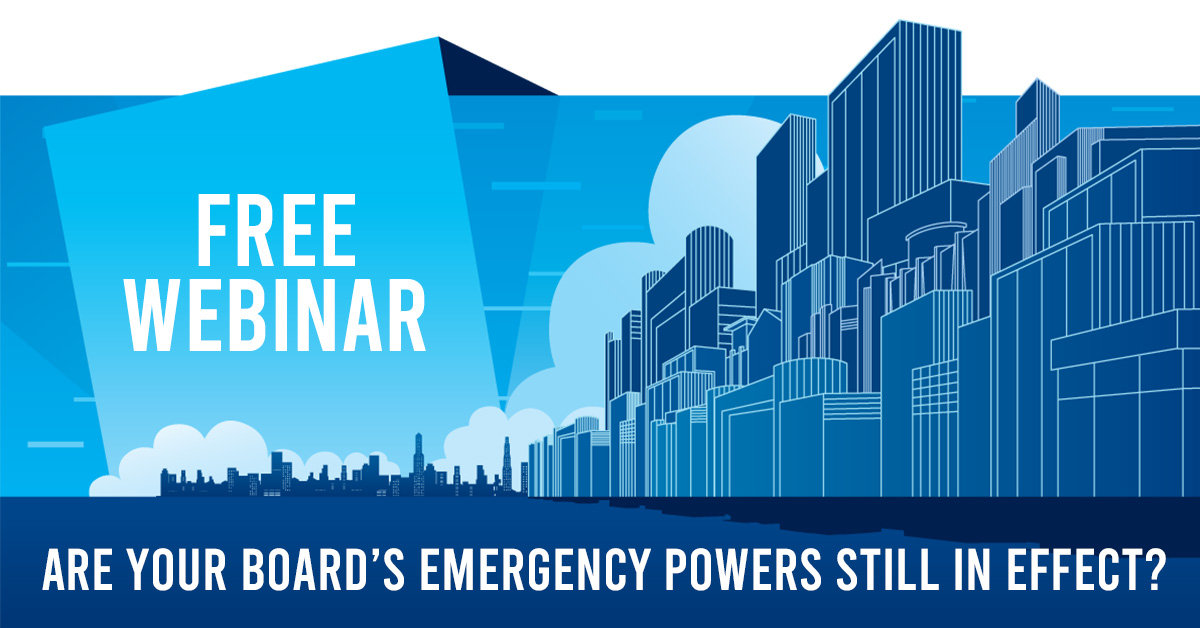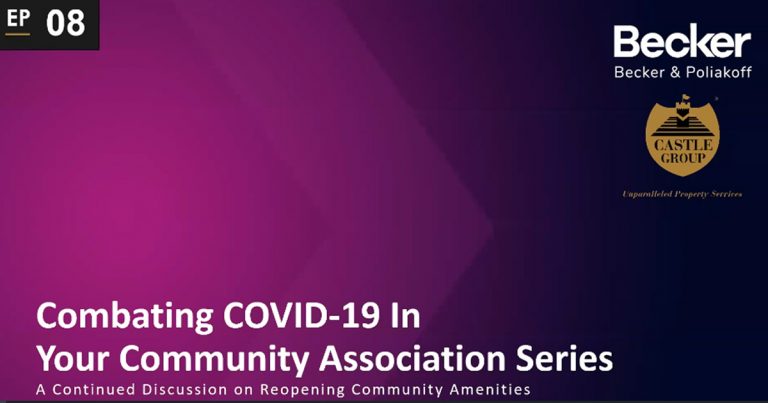Stay up to date with Becker’s dedicated resource page on COVID-19. We are updating the information on this site on a daily basis. All information is posted to educate and inform our clients but does not constitute specific legal advice for your community. Please consult your Becker attorney for questions specific to your own community. CLICK HERE
In this Issue
June means the start of Hurricane season in Florida and while we always hope for a quiet year, it’s important that your community take steps now to ensure preparedness should disaster strike. This issue includes Becker’s newly interactive 2020 Hurricane Guide which provides important tips and information to help prepare and protect your community. Make sure to check out the guide along with all of the other informative content this month.
This month’s featured article, “Slowly Getting Over the Hump: Addressing Speeding with Traffic Calming Devices,” discusses can and if your association should install speed bumps or humps to deter speeding in your community.
Must association members be notified of all board meetings prior to? Find out the answer in, “To Notice, or Not to Notice, That Is the Question: Closed Board Meetings.”
In “Tiffany Plaza Condominium Association v. Spencer” unit owners challenged the payment of assessments for an alteration the members did not approve. So, why does THIS CASE matter? Find out how this case and its progeny have shaped the application of current law.
Lastly, don’t miss June’s Spanish article, “El avance de la tecnología en las leyes de las asociaciones.”
Mark D. Friedman, Esq. & Jay Roberts, Esq., Editors
-
 Slowly Getting Over the Hump: Addressing Speeding with Traffic Calming Devices
Slowly Getting Over the Hump: Addressing Speeding with Traffic Calming DevicesBetween kids at play, exterior maintenance projects, pedestrians, and cyclists, your association could be seriously impacted by speeders. As a follow up to Jennifer Horan, Esquire’s article “Slow Your Roll: How to Address Speeding Issues in your Association,” …
Continue Reading →
To Notice, or Not to Notice, That Is the Question: Closed Board Meetings
The answer to the question of whether all board meetings must be properly noticed to the members is YES. Even the emergency powers section of the community association statutes require notice to be given as is practicable.
What about “closed board meetings?”

Tiffany Plaza Condominium Association v. Spencer
416 So.2d 823 (Fla. 2d DCA 1982)
Last month we discussed material alterations and left you with the question, “when is a material alteration considered maintenance, allowing the board to move forward without membership approval (if required by your documents)?”
In Tiffany Plaza Condominium Association, Inc. v. Spencer, 416 So.2d 823 (Fla. 2d DCA, 1982), the condominium unit owners brought action against the association challenging the collection of an assessment for construction of a rock revetment on beachfront common property. The Circuit Court entered judgment for unit owners and the association appealed. The District Court of Appeal held that the association could properly assess all unit owners for construction of rock revetment to protect beachfront common element from damage if in fact construction of revetment was found to be necessary to protect the beachfront from erosion or damage. Therefore, this was considered maintenance and not an alteration requiring membership approval.
Two years later in Cottrell v. Thornton, 449 So.2d 1291 (Fla. 2d DCA, 1984), it was held that a vote of the unit owners was not required for repairs to canal systems, roadway systems, and a swimming pool to protect the common elements. Arbitrators from the Division of Florida Condominiums, Time Shares and Mobile Homes have extended this maintenance concept to also cover alterations and changes to the property to provide security. In Southridge Homeowners Association, Inc. v. Barbieri, (Arb. Case No. 94-0382), the arbitrator held that the association could have properly determined to install security lights without a vote of the owners if there existed convincing factual predicate that the board’s action was necessary to protect the common elements or inhabitants from a known danger. In Williams v. Sky Harbour Condominium Apartments, Case No. 93-0334), the arbitrator held that unit owner approval was not required for the construction of a fence on the condominium property where the condominium building was vulnerable to intrusion by persons without any legitimate connection to the project. The arbitrator stated:
. . . where there is a convincing factual predicate that a particular task undertaken by the board is necessary to protect the common elements or inhabitants from a known danger or peril, the board should be permitted to perform its maintenance, preservation, and protection function without the encumbrance of [the Florida Statutes]. This is consistent with Tiffany Plaza, . . . and its progeny. This result should obtain whether the perceived danger is from natural forces such as ocean erosion, or dangers posed by persons, whether would-be vandals, assailants, or mere trespassers, as the damage wrought by either force may be of the same gravity and proportion, and both are beyond the immediate ability of the association to control. (emphasis supplied)
So, why does THIS CASE (and its progeny) matter? There are times when a change is necessary to protect the condominium building. If an engineer provides that a certain type of change based on newer technology or other reasons would protect the condominium property, or a change in the law requires different materials or certain types of installations, or there is a convincing factual predicate that there is a preventable danger to the property, the board in its business judgment, after consultation with legal counsel, may (and I emphasize “may”) be able to do this without the vote on alterations required in the Declaration of Condominium or Section 718.113.
El avance de la tecnología en las leyes de las asociaciones
By: Lilliana Farinas-Sabogal, Esq.
Debido a la reciente pandemia del Covid-19, las asociaciones han tenido que modificar los protocolos de reuniones al vuelo. Más allá de los requerimientos de distanciamiento social, de la preocupación de los miembros y de las juntas con respecto a la propagación de la enfermedad, así como las ordenanzas que prohíben grupos de más de 10 personas, los asuntos de la asociación necesitaban ser atendidos. De hecho, la pandemia en sí requirió muchas reuniones de la junta para atender múltiples asuntos resultantes de la misma. ¿Cómo realizar esta tarea sin ir en contra de las nuevas restricciones o contactos sociales y al mismo tiempo proveer una ventana por la cual los miembros que lo deseen puedan observar los trámites de trabajo de la junta? Zoom y otras plataformas similares como Microsoft Teams u otras opciones.
Lee mas
Question of the Month
Q: Because of COVID-19, our homeowners association has prohibited guest use of our pool and fitness center. This has precluded third-party led fitness classes, even if the classes are offered outdoors. Instead, the association is allowing member-led fitness classes outdoors, like aqua aerobics and yoga, on the common areas. Is it permissible to allow members to offer such classes to other members on the common areas?
Shareholder Joseph Adams, Esq. discusses the answer to this and more.
Can They Do That?
“The insurance company wants to take my Florida claim and litigate in New York. Can they do that?” Becker Shareholder Hugo Alvarez discusses in a brand new episode!
When it comes to association rules and bylaws, there seem to be more questions than answers. Becker’s video series, “Can They Do That?” tackles some of the unique problems that homeowners and renters face today. We answer questions, no matter how far-fetched they may seem. From service animals to nudists in your community, we get to the bottom of it and let you know – “Can They Do That?”
Don’t miss out on new episodes of “Can They Do That?”
Subscribe to Becker’s YouTube channel!
Urge Governor DeSantis to Extend State of Emergency
CALL sent a letter to Governor DeSantis regarding the upcoming expiration of the State of Emergency on July 7. Given that Florida’s numbers of COVID-19 cases continue to head in the wrong direction, we are seeking an extension of emergency powers for our volunteer boards who need to take steps to continue to safeguard their vulnerable resident populations. For those of you who wish to urge the Governor to assist you in this regard you may contact him by clicking here.
Community Association Law Headed in the Right Direction
FLCAJ
By: Lilliana M. Farinas-Sabogal, Esq.
Over the years, there have been a number of advents in Florida community association law toward allowing technology to facilitate the operation of community associations. For many years, board members were able to call in to board meetings and attend and vote, so long as speaker phones were available at the meeting site for members present to hear the discussion and comments. This made it easier for volunteer board members to coordinate scheduling issues that could arise if it was imperative that a quorum be present in person for board business to continue. Also, the Florida Not-for-Profit Corporation Act allowed copies of proxies emailed or faxed to the association to be used in the same way as originals. If an association was required to use the original proxy, the unit owner had to mail or hand deliver it. However, if the association could use a copy that can be emailed or faxed to it, then the owner did not have to mail the proxy days before or attend the meeting in order for his or her vote to count. By allowing a copy emailed or faxed to the association to be used, unit owners had more time and flexibility to cast their proxies and have their voices heard. While this was an important assist in owner participation, it would only help in cases where owners could vote by proxy. So, in a condominium association—for example—election of directors still had to take place with the two-envelope paper system.
Opinion: Fuzzy Government Rules Leave Condo Boards in Coronavirus Quandary
Miami Herald
By: Donna DiMaggio Berger, Esq.
The COVID-19 pandemic has rewritten the operational script for many industries, including the community association industry. As with most of life’s challenges, we are acquiring take-away lessons that will help us adapt even more quickly the next time a curve ball heads our way.
The lessons our boards, residents and managers have learned over the last few months only reinforce the constants that those of us who have served in the community association arena have known for a long time: Serving on a board of directors is not for the faint of heart, and you’re only as strong as your governing documents and the professional advisors you rely upon to make informed, reasonable decisions for your community.
The Employer’s Playbook Webinar Series
“The Employer’s Playbook to COVID-19” is an all new video series led by Employment Law Shareholder Jamie Dokovna. Each episode, Jamie answers employer’s questions on best practices for handling specific situations in the workplace.
Topics range from what to do if an employee has a temperature to what procedures to implement prior to reopening offices.
CALLING ALL BOARD MEMBERS AND COMMUNITY MANAGERS
As a service to the community and industry, we are pleased to offer some of our most popular classes online! While our in-person classes remain suspended until further notice due to COVID-19, we are thrilled to bring you the following classes to participate in from the comfort of your own home.
HOA/Condo Board Member Certification – Watch Replay
Disaster Preparedness and Recovery – Watch Replay
UPCOMING CLASSES
Anatomy of a Water Leak
6.30.20 @ 10am – Register Now
Understanding Our Bylaws (coming soon!)
Is a “No Pet” Building a Thing of the Past? (coming soon!)
Statewide Suspension of Community Association Classes
Becker has been closely monitoring the latest coronavirus (COVID-19) developments. In the continued interest of the health and safety of our clients and colleagues, we have made a decision to continue the suspension of all Community Association classes until further notice.
As always, we will keep you informed of any changes and updates.
RECENT & UPCOMING WEBINARS
Employers Playbook: Continuing the Dialogue – When Safety is Not Enough
Becker Shareholder Jamie Dokovna and Dr. Shanequa Fleming, Founder and CEO of Culture Accelerators, joined up for another dynamic and engaging discussion about the workplace, COVID-19, and the impact of what is going on in the world around us. Watch the replay!
June 25
Are Your Board’s Emergency Powers Still in Effect
The fluid nature of the pandemic, mixed with oftentimes inconsistent guidelines from all levels of government, has led to understandable confusion. Becker Community Association Shareholders explore the continuing state of emergency powers throughout Florida, best practices to follow when reopening facilities, how to handle allowing access to outside guests and contractors, and other timely topics. Watch the replay!
June 10
Combating COVID-19 In Your Community Association Episode 10
Becker Shareholder Donna DiMaggio Berger, Esq. participated in episode 10 of the Castle Group’s COVID-19 webinar series. She was joined by Castle Group’s Founder and CEO James Donnelly. Donna and James explored topics including the challenges associated with re-opening communities. Watch the replay!
June 10
DID YOU KNOW?
Becker’s 2020 Hurricane Guide is Here!
Community association boards and managers should ensure that their communities have adequate disaster planning measures in place as hurricane season approaches. To help you in weathering the storm, check out Becker’s Hurricane Guide which provides important tips and information to help protect your community.
Click here to view our new interactive Hurricane Guide webpage.









![look-[Converted]](https://www.floridacondohoalawblog.com/wp-content/uploads/2020/04/look-Converted.png)




